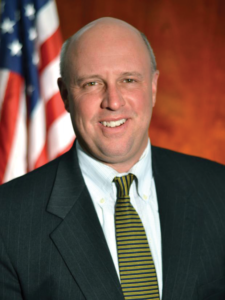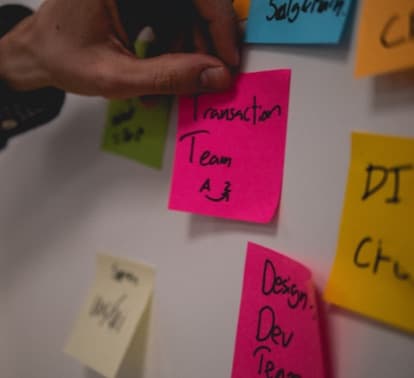What we accomplished at Mass Fintech Hub in 2021
2nd Feb 2022 • News
SHARE
By Secretary Mike Kennealy, Housing and Economic Development Secretary of Massachusetts and Mike Fanning, Head of MassMutual US
Many communities house universities, banks, regulating agencies, and a pool of talent to draw solutions from— but seldomly do these groups come together to create an ecosystem of economic growth.
That’s why major cities and regions around the world including London, Paris, Hong Kong, and our own state have established successful incubators and innovation hubs focused on advancing fintech. The key is to tap into local communities to build thriving ecosystems. Innovation hubs can foster collaboration and solidify relationships between different sectors, bringing different ideas, resources, and talent together. 2021 was a pivotal year for our efforts to make Massachusetts a global fintech leader and we’ve learned much along the way.
The Commonwealth is in a unique position to fan the flames of a thriving fintech ecosystem thanks to its access to world class talent, academic institutions, an established investor community and being home to startups that are disrupting industries and making others run more efficiently. We are seeing an influx of capital to support these efforts as well. Last year, Massachusetts saw record breaking venture funding with $3.8 billion raised in 2021. Prior to this, the most fintech venture capital raised in Massachusetts in a single year was $800 million (2019).
As a result of years of hard work across the public, private, and nonprofit sectors in the Commonwealth, Mass Fintech Hub was born. Our goal is to bring together the leaders of fintechs, academia, the investor community, and local policymakers to make the Commonwealth a global fintech leader. The Mass Fintech Hub was created in collaboration with the Massachusetts Fintech Working Group as part of Governor Charlie Baker’s economic agenda that has created opportunities for both local governments and the private sector across Massachusetts.


The Mass Fintech Hub has met the challenge by delivering quality events and building its member base. For example, our Fintech Forum took place during Boston FinTech Week and served as a method for startups to connect and partner with financial service industry leaders. This initiative was founded to create learning opportunities that will lead to new tech-led solutions and showcase collaboration success stories.
The Mass Fintech Hub Career Fair and Angel Investor Education Series also took place during Boston FinTech Week and drew significant attendance. The former is a virtual career fair that brought together industry partners and startups, as well as students and faculty members from Massachusetts academic institutions to meet, learn and network to help students jumpstart their fintech careers. The investor series was a panel discussion for accredited investors, in which successful angel investors shared their entrepreneurial journey, how they source and vet deals, and lessons they learned along the way.
Mass Fintech Hub is also setting a global standard for student fintech education through its Fintech Bootcamp. The program draws from diverse and underrepresented talent in the region, widening the potential pool of talent for a growing fintech sector, one that reflects the population of global cities and that is mindful of the need for intersectional and inclusive tech-based solutions. We encourage other innovation hubs globally to replicate this forum. As of early December 2021, the Mass Fintech Hub has more than doubled membership and received hundreds of requests to join its growing programming geared towards developing fintech startups. Three hundred fintech companies now reside in the Commonwealth, with as much as $5.9 billion in total capital raised.
The Mass Fintech Hub’s membership is also reflective of how the financial services industry is moving to address global challenges like sustainability and inclusivity for communities that are historically excluded from accessing critical financial tools. As more startups develop products and technologies that deliver access to financial systems, the more impact the fintech industry can have on creating an inclusive and sustainable fintech sector for everyone.
Burgeoning brands are motivated to tell great stories at major events like Boston FinTech Week and discuss industry-wide challenges. New companies in the sector can learn to articulate the solutions they bring to the market, while meeting leaders in adjacent sectors to discuss future growth opportunities. Established financial groups, venture capital funds, and governmental agencies draw from the storytelling to find new talent and support up-and-coming startups whose mission aligns with their own. More public-private partnerships like Mass Fintech Hub can be forged within supportive environments that encourage new growth and entrepreneurship in the fintech sector.
2022 will be marked by the establishment of more programming geared toward supporting fintech and articulating the value of the work our community is doing to expand this ecosystem. Fintech is no longer an emerging industry – it reaches into every industry and communities must keep pace with its rapid advancement. Last year proved to many that fintech is an exceptional force for the Massachusetts economy, but also provided something more important – hope. We live in extraordinary times, but by working together, we have an opportunity to make a lasting impact on the lives of many and lead progress into the future.
Many communities house universities, banks, regulating agencies, and a pool of talent to draw solutions from— but seldomly do these groups come together to create an ecosystem of economic growth.
That’s why major cities and regions around the world including London, Paris, Hong Kong, and our own state have established successful incubators and innovation hubs focused on advancing fintech. The key is to tap into local communities to build thriving ecosystems. Innovation hubs can foster collaboration and solidify relationships between different sectors, bringing different ideas, resources, and talent together. 2021 was a pivotal year for our efforts to make Massachusetts a global fintech leader and we’ve learned much along the way.
The Commonwealth is in a unique position to fan the flames of a thriving fintech ecosystem thanks to its access to world class talent, academic institutions, an established investor community and being home to startups that are disrupting industries and making others run more efficiently. We are seeing an influx of capital to support these efforts as well. Last year, Massachusetts saw record breaking venture funding with $3.8 billion raised in 2021. Prior to this, the most fintech venture capital raised in Massachusetts in a single year was $800 million (2019).
As a result of years of hard work across the public, private, and nonprofit sectors in the Commonwealth, Mass Fintech Hub was born. Our goal is to bring together the leaders of fintechs, academia, the investor community, and local policymakers to make the Commonwealth a global fintech leader. The Mass Fintech Hub was created in collaboration with the Massachusetts Fintech Working Group as part of Governor Charlie Baker’s economic agenda that has created opportunities for both local governments and the private sector across Massachusetts.


The Mass Fintech Hub has met the challenge by delivering quality events and building its member base. For example, our Fintech Forum took place during Boston FinTech Week and served as a method for startups to connect and partner with financial service industry leaders. This initiative was founded to create learning opportunities that will lead to new tech-led solutions and showcase collaboration success stories.
The Mass Fintech Hub Career Fair and Angel Investor Education Series also took place during Boston FinTech Week and drew significant attendance. The former is a virtual career fair that brought together industry partners and startups, as well as students and faculty members from Massachusetts academic institutions to meet, learn and network to help students jumpstart their fintech careers. The investor series was a panel discussion for accredited investors, in which successful angel investors shared their entrepreneurial journey, how they source and vet deals, and lessons they learned along the way.
Mass Fintech Hub is also setting a global standard for student fintech education through its Fintech Bootcamp. The program draws from diverse and underrepresented talent in the region, widening the potential pool of talent for a growing fintech sector, one that reflects the population of global cities and that is mindful of the need for intersectional and inclusive tech-based solutions. We encourage other innovation hubs globally to replicate this forum. As of early December 2021, the Mass Fintech Hub has more than doubled membership and received hundreds of requests to join its growing programming geared towards developing fintech startups. Three hundred fintech companies now reside in the Commonwealth, with as much as $5.9 billion in total capital raised.
The Mass Fintech Hub’s membership is also reflective of how the financial services industry is moving to address global challenges like sustainability and inclusivity for communities that are historically excluded from accessing critical financial tools. As more startups develop products and technologies that deliver access to financial systems, the more impact the fintech industry can have on creating an inclusive and sustainable fintech sector for everyone.
Burgeoning brands are motivated to tell great stories at major events like Boston FinTech Week and discuss industry-wide challenges. New companies in the sector can learn to articulate the solutions they bring to the market, while meeting leaders in adjacent sectors to discuss future growth opportunities. Established financial groups, venture capital funds, and governmental agencies draw from the storytelling to find new talent and support up-and-coming startups whose mission aligns with their own. More public-private partnerships like Mass Fintech Hub can be forged within supportive environments that encourage new growth and entrepreneurship in the fintech sector.
2022 will be marked by the establishment of more programming geared toward supporting fintech and articulating the value of the work our community is doing to expand this ecosystem. Fintech is no longer an emerging industry – it reaches into every industry and communities must keep pace with its rapid advancement. Last year proved to many that fintech is an exceptional force for the Massachusetts economy, but also provided something more important – hope. We live in extraordinary times, but by working together, we have an opportunity to make a lasting impact on the lives of many and lead progress into the future.
Mass Fintech Hub Announces New Advisory Board and Unveils Early Programming Schedule for 2022
17th Mar 2022 • News
Public-Private Partnership Continues to Foster Collaboration Across the Commonwealth to...
READ ARTICLE
